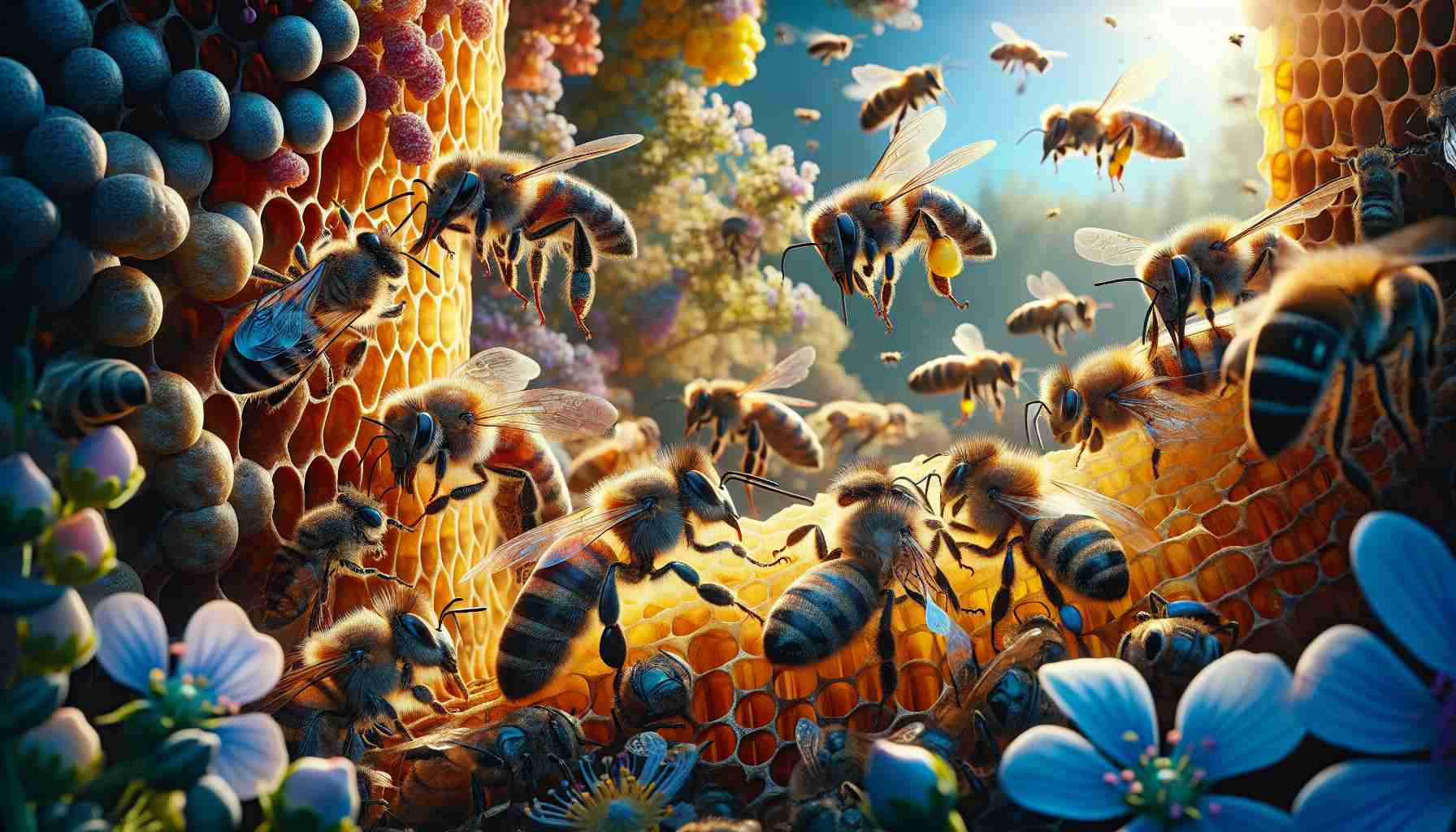Bees are often underestimated creatures, yet they play a crucial role in maintaining the health of our planet. These industrious insects are responsible for the pollination of numerous plants, including over one-third of the food crops we consume daily. The importance of bees extends beyond just their ability to produce honey; they are vital for biodiversity and the sustenance of various ecosystems.
One of the primary reasons bees are essential is their role in pollination. Pollination is the process by which pollen is transferred from the male part of a flower to the female part, enabling plants to produce fruits and seeds. This process is essential for the growth of about 75% of the world’s flowering plants, which includes many fruits, vegetables, and nuts. Without bees, many of these plants would struggle to reproduce, leading to a decline in food availability and negatively impacting the food chain.
Moreover, bees contribute to biodiversity. Many plants that thrive on pollination from bees support various other species, including birds, insects, and animals. A healthy bee population ensures that a wide variety of plants can flourish. Biodiversity is crucial as it allows ecosystems to adapt to changes, recover from disturbances, and maintain the ecological balance necessary for life.
Unfortunately, bee populations have been declining at alarming rates. Factors such as habitat loss, pesticide use, and climate change contribute to this decrease. The phenomenon known as Colony Collapse Disorder (CCD) has been particularly troubling for beekeepers and researchers alike. CCD is characterized by the sudden disappearance of worker bees in a colony, leaving the queen and immature bees behind. This mysterious occurrence has raised concerns about the long-term viability of bee populations.
Conserving bees and their habitats is now more crucial than ever. Simple actions can make a significant difference. Homeowners can plant pollinator-friendly flowers, avoid using pesticides, and create habitats for bees to thrive. Community awareness initiatives can also promote strategies to protect these essential insects. Many organizations are dedicated to conservation efforts, researching bee health and developing sustainable beekeeping practices.
In conclusion, bees are more than just producers of honey; they are vital to our ecosystem and food supply. By understanding their significance and taking measures to protect them, we can help ensure that these remarkable insects continue to enrich our lives. The health of our planet depends on the intricate web of life that bees support, making it imperative that we do our part in safeguarding their future.
Buzzing with Knowledge: Tips and Life Hacks to Support Our Bees
As we continue to learn about the incredible role bees play in our ecosystem and food supply, it’s essential to explore ways we can support these industrious insects. From planting choices to lifestyle changes, here are some insightful tips and hacks to help protect and nurture bee populations.
1. Create a Bee-Friendly Garden
One of the best things you can do to support bees is to plant a diverse array of native flowers. Opt for plants that bloom at different times of the year to provide a continuous food source for bees. Consider adding flowers like lavender, sunflowers, and wildflowers native to your region. The more variety you have, the better it is for your local bee populations.
2. Avoid Pesticides
Pesticides can be harmful to bees and other beneficial insects. Whenever possible, choose organic options or natural pest-removal strategies. If you do need to use chemicals, apply them in the evening when bees are less active, and target specific pests to minimize harm to beneficial species.
3. Provide Water Sources
Bees need water just like any other living creature. Create a simple water source by filling a shallow dish with stones and adding water. The stones will provide a landing pad for bees so they can access the water without drowning.
4. Build Bee Hotels
Support solitary bee species that don’t live in hives by constructing bee hotels. These simple structures can be made with bamboo tubes or hollow plant stems and provide nesting spaces for solitary bees, which are essential pollinators.
5. Educate Others
Raise awareness about the importance of bees in your community. Host workshops, share articles on social media, or collaborate with local schools to educate children and adults alike about the ways to protect these vital creatures.
6. Support Local Beekeepers
Buying honey and other bee products from local beekeepers helps maintain sustainable practices and supports those who are working hard to keep bee populations healthy. Look for farmers’ markets or local co-ops that offer these products.
7. Join Conservation Efforts
Many organizations are dedicated to bee conservation efforts. Consider joining initiatives or volunteer programs that aim to protect bee habitats and increase public awareness about their significance.
Fun Facts About Bees
– Did you know that bees communicate through dance? A “waggle dance” indicates the direction and distance of food sources to other bees in the hive!
– There are over 20,000 species of bees worldwide, not just honeybees. Many solitary bees play crucial roles in pollination as well.
– Bees can recognize human faces! They associate certain visuals with rewards for visiting flowers.
By adopting these practices and spreading awareness, you can substantially contribute to the health and longevity of bee populations. Remember, every little effort counts toward saving these vital pollinators.
For more information on how to contribute to bee conservation and learn about their importance, visit Pollinator Partnership. You can also explore resources at The Bee Friends for more tips and insights.







